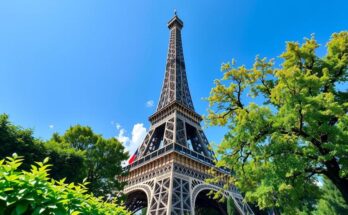The diplomatic meeting in Doha marked significant discussions between Rwanda and the DRC, with President Kagame emphasizing Rwanda’s unwavering stance on national security and regional peace. The contrasting narratives post-meeting reveal a commitment to dialogue from Rwanda while seeking actionable resolutions to longstanding security concerns. Key outcomes included support for regional initiatives and the need for direct dialogue with the AFC/M23 rebel movement.
Following a pivotal diplomatic meeting in Doha, President Paul Kagame reiterated Rwanda’s unwavering commitment to regional peace, emphasizing that national security remains non-negotiable. The meeting, facilitated by Emir Sheikh Tamim bin Hamad Al Thani, aimed to reduce tensions between Rwanda and the Democratic Republic of the Congo (DRC), with both leaders engaging in discussions of significant importance.
While the joint statement described Qatar’s mediation efforts as positive, subsequent individual statements from Kigali and Kinshasa highlighted differing perspectives. Rwanda’s statement from Village Urugwiro confirmed its commitment to dialogue but stressed that any peace process must tackle enduring security concerns that have long affected the region.
Rwanda approached the meeting with restraint, eschewing sweeping declarations. Unlike the DRC’s assertion of an “immediate and unconditional ceasefire,” Rwanda refrained from making such commitments. Instead, Kigali focused on the necessity of ongoing diplomatic engagement and clear resolutions that address the root causes of instability in the eastern DRC.
A significant outcome from the talks was the reaffirmation of support for the East African Community – Southern African Development Community (EAC-SADC) processes as vital for conflict resolution. Kagame argued that solutions must stem from regional initiatives rather than yield to external pressures, reinforcing the significance of a coordinated approach.
Furthermore, Kigali accentuated the importance of addressing the FDLR, a group perpetrating violence in eastern DRC. Rwanda has consistently sought decisive international and Congolese government action to counter the FDLR, emphasizing that neglecting this issue undermines serious peace efforts.
Rwanda also articulated the necessity of security guarantees throughout the Great Lakes region. Sustained peace, as per Kigali, could only be realized through prioritizing regional security, a viewpoint that contrasted with the DRC’s focus on ceasefire agreements while overlooking fundamental security issues.
A notable discussion point was the proposal for direct political dialogue with the AFC/M23 rebel movement, with Rwanda and regional actors urging Kinshasa to engage the group. Kagame maintained that a lasting resolution requires addressing the grievances of all parties rather than resorting solely to military solutions.
Amid challenges, Kagame expressed cautious optimism regarding peace prospects, maintaining that mutual commitment to meaningful dialogue among all stakeholders could expedite progress. He noted, “With all parties working together, things can move forward faster,” underscoring regional cooperation’s importance in achieving peace.
As host, Qatar adopted a neutral stance, defining its role as a facilitator in the discussions without alluding to specific agreements. Previous negotiations yielded conflicting narratives, with Kinshasa claiming concessions from Rwanda while Kigali asserted its firm stance on national security.
In conclusion, the Doha meeting underlined the complex dynamics between Rwanda and the DRC, with distinct narratives emerging post-discussions. Rwanda emphasized the importance of security, regional cooperation, and dialogue while highlighting the impending threats posed by armed groups. Without addressing these foundational issues, any agreements could be rendered ineffective. The future of the peace process hinges on whether the DRC is willing to confront its internal challenges and foster genuine dialogue.
Original Source: www.ktpress.rw




